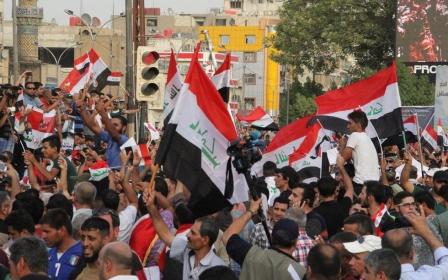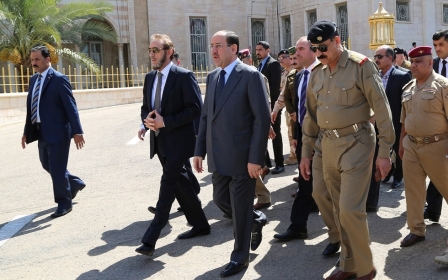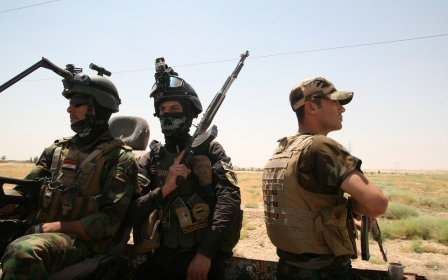Iraq lawmakers refer report on fall of Mosul to judiciary

Iraqi lawmakers voted on Monday to refer a report holding top officials, including ex-premier Nouri al-Maliki, responsible for the fall of second city Mosul, to the judiciary, the parliament speaker said.
But there were disagreements over the report, with MPs voting to send it without an official reading, and members of the investigative committee that compiled it complaining that there was no vote to approve the recommendations it contained
"Parliament voted to refer the (Mosul) file, including facts and evidence and names," to the judiciary, speaker Salim al-Juburi said in televised remarks.
"None of the names mentioned in this report were deleted, and all of them will be sent to the judiciary. An investigation and follow up and accounting of all those who caused the fall of Mosul will be carried out," Juburi said.
Former prime minister and vice president Maliki was the most senior and controversial of those named responsible in the report for the Islamic State group's takeover of Nineveh province capital Mosul in 2014.
Maliki, who had been accused of fomenting sectarianism during his time in office, could face prosecution as a result of the report.
Investigative committee members Hanin Qado and Ammar al-Shibli both said the committee did not vote on the recommendations within the report.
Qado, a member of the Shabak minority, said the report was not read in parliament "due to differences on the recommendations, because there was no vote on the recommendations within the committee".
"The committee is not neutral," said Shibli, from Maliki's State of Law alliance.
Jaber al-Jaberi, an Iraqi MP, told the Financial Times that it was not the job of parliament to recommend punishment.
“The parliament has now sent its reports and all its documents to the federal courts. They didn’t recommend any specific action because that’s not the parliament’s duty,” he said. “It’s up to the judiciary to investigate and see who is guilty.”
IS launched a devastating offensive on 9 June last year, overrunning Mosul the next day and then sweeping through large areas north and west of Baghdad.
Multiple Iraqi divisions collapsed during the initial assault in the north, in some cases abandoning weapons and other equipment which the militants then used to further their drive.
While various top commanders and political leaders have long been blamed for the Mosul loss, the report is the first time that they have been named officially.
Those named include defence minister Saadun al-Dulaimi, army chief of staff Babaker Zebari, his deputy Aboud Qanbar, ground forces commander Ali Ghaidan, Nineveh operations command chief Mahdi al-Gharawi and the province's governor, Atheel al-Nujaifi.
New MEE newsletter: Jerusalem Dispatch
Sign up to get the latest insights and analysis on Israel-Palestine, alongside Turkey Unpacked and other MEE newsletters
Middle East Eye delivers independent and unrivalled coverage and analysis of the Middle East, North Africa and beyond. To learn more about republishing this content and the associated fees, please fill out this form. More about MEE can be found here.




